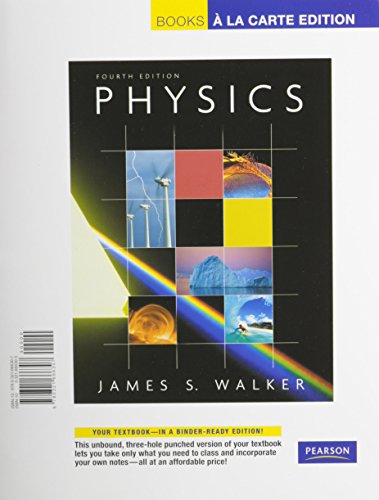Verwandte Artikel zu Corrosion Resistance of High-Performance Materials:...

Zu dieser ISBN ist aktuell kein Angebot verfügbar.
Alle Exemplare der Ausgabe mit dieser ISBN anzeigen:CORROSION RESISTANCE IS THE PROPERTY OF A MATERIAL TO RESIST CORROSION ATTACK IN A PARTICULAR AGGRESSIVE ENVIRONMENT. ALTHOUGH TITANIUM, TANTALUM AND ZIRCONIUM ARE NOT NOBLE METALS, THEY ARE THE BEST CHOICE WHENEVER HIGH CORROSION RESISTANCE IS REQUIRED. THE EXCEPTIONALLY GOOD CORROSION RESISTANCE OF THESE HIGH–PERFORMANCE METALS AND THEIR ALLOYS RESULTS FROM THE FORMATION OF A VERY STABLE, DENSE, HIGHLY ADHERENT, AND SELF–HEALING PROTECTIVE OXIDE FILM ON THE METAL SURFACE. THIS NATURALLY OCCURRING OXIDE LAYER PREVENTS CHEMICAL ATTACK OF THE UNDERLYING METAL SURFACE. THIS BEHAVIOR ALSO MEANS, HOWEVER, THAT HIGH CORROSION RESISTANCE CAN BE EXPECTED ONLY UNDER NEUTRAL OR OXIDIZING CONDITIONS. UNDER REDUCING CONDITIONS, A LOWER RESISTANCE MUST BE RECKONED WITH. ONLY VERY FEW INORGANIC AND ORGANIC SUBSTANCES ARE ABLE TO ATTACK TITANIUM, TANTALUM OR ZIRCONIUM AT AMBIENT TEMPERATURE. AS THE EXTRAORDINARY CORROSION RESISTANCE IS COUPLED WITH AN EXCELLENT FORMABILITY AND WELDABILITY THESE MATERIALS ARE VERY VALUABLE FOR A LARGE NUMBER OF APPLICATIONS, SUCH AS HEAT EXCHANGERS, REACTION VESSELS, FUNACE CONSTRUCTION, RADIATION SHIELDING, IMPLANTS FOR MEDICAL TECHNOLOGY, AND CAPACITOR COMPONENTS IN ELECTRONICS.
Die Inhaltsangabe kann sich auf eine andere Ausgabe dieses Titels beziehen.
Reseña del editor:
Corrosion resistance is the property of a material to resist corrosion attack in a particular aggressive environment. Although titanium, tantalum and zirconium are not noble metals, they are the best choice whenever high corrosion resistance is required. The exceptionally good corrosion resistance of these high-performance metals and their alloys results from the formation of a very stable, dense, highly adherent, and self-healing protective oxide film on the metal surface. This naturally occurring oxide layer prevents chemical attack of the underlying metal surface. This behavior also means, however, that high corrosion resistance can be expected only under neutral or oxidizing conditions. Under reducing conditions, a lower resistance must be reckoned with. Only very few inorganic and organic substances are able to attack titanium, tantalum or zirconium at ambient temperature. As the extraordinary corrosion resistance is coupled with an excellent formability and weldability these materials are very valuable for a large number of applications, such as heat exchangers, reaction vessels, funace construction, radiation shielding, implants for medical technology, and capacitor components in electronics. Derived from the renowned DECHEMA Corrosion Handbook, this text provides a comprehensive overview of corrosion protection and prevention on the high-performance materials Titanium, Tantalum and Zirconium.
Biografía del autor:
Michael Schutze, born in 1952, studied materials sciences at the University of Erlangen-Nuremberg from 1972 to 1978, and then joined the Karl Winnacker Institute of DECHEMA as a research associate. He received his doctorate in engineering sciences from the Technical University of Aachen (RWTH) in 1983, and his lecturing qualifi cation in 1991, becoming a member of the external teaching staff of the RWTH, where he has held a professorship since 1998 and has been director of the Karl Winnacker Institute since 1996. He is a recipient of the Friedrich Wilhelm Prize, the Rahmel Schwenk Medal and the Cavallaro Medal, a past chairman of the Gordon Research Conference on Corrosion, editor of the journal Materials and Corrosion, past president of the European Federation of Corrosion, and of the World Corrosion Organization, as well as chairman of the Working Party Corrosion by Hot Gases and Combustion Products of the European Federation of Corrosion. Karl-Gunther Schutze, born in 1954, studied chemistry at the University of Frankfurt (Main). He joined the Karl-Winnacker Institute of DECHEMA for the diploma thesis in 1980 and started his Ph.D. thesis at the corrosion department of the same institute. He received his doctorate in physical chemistry in 1985, and worked since 1984 as head of the corrosion laboratory of Degussa AG. Since 2002 he is head of the materials engineering group of Evonik Industries AG in Hanau-Wolfgang. Roman Bender, born in 1971, studied chemistry at the Justus Liebig University of Giessen from 1992 to 1997. He received his doctorate in natural sciences from the Technical University of Aachen (RWTH Aachen) in 2001. After receiving his diploma he joined the Karl Winnacker Institute of the DECHEMA in Frankfurt (Main) as a research associate, where he has been head of the materials and corrosion group since 2000, and editor-in-chief of the world's largest corrosion data collection, the DECHEMA Werkstofftabelle and the Corrosion Handbook. In 2008 Dr. Bender was appointed CEO of the GfKORR - the Society for Corrosion Protection.
„Über diesen Titel“ kann sich auf eine andere Ausgabe dieses Titels beziehen.
- VerlagBlackwell Verlag GmbH
- Erscheinungsdatum2012
- ISBN 10 3527334351
- ISBN 13 9783527334353
- EinbandTapa dura
- Anzahl der Seiten526
- HerausgeberSchütze Michael, Bender Roman, Schütze Karl-Günther
Gebraucht kaufen
Zustand: Sehr gutGepflegter, sauberer Zustand. Aus... Mehr zu diesem Angebot erfahren
EUR 177,47
Versand:
EUR 45,00
Von Deutschland nach USA
Beste Suchergebnisse beim ZVAB
Corrosion Resistance of High-Performance Materials Titanium, Tantalum, Zirconium
Verlag:
Wiley-VCH
(2012)
ISBN 10: 3527334351
ISBN 13: 9783527334353
Gebraucht
Hardcover
Erstausgabe
Anzahl: 1
Anbieter:
Bewertung
Buchbeschreibung Zustand: Sehr gut. 1. Auflage. Gepflegter, sauberer Zustand. Aus der Auflösung einer renommierten Bibliothek. Kann Stempel beinhalten. 22570263/202. Artikel-Nr. 22570263202
Weitere Informationen zu diesem Verkäufer | Verkäufer kontaktieren
Gebraucht kaufen
EUR 177,47
Währung umrechnen

